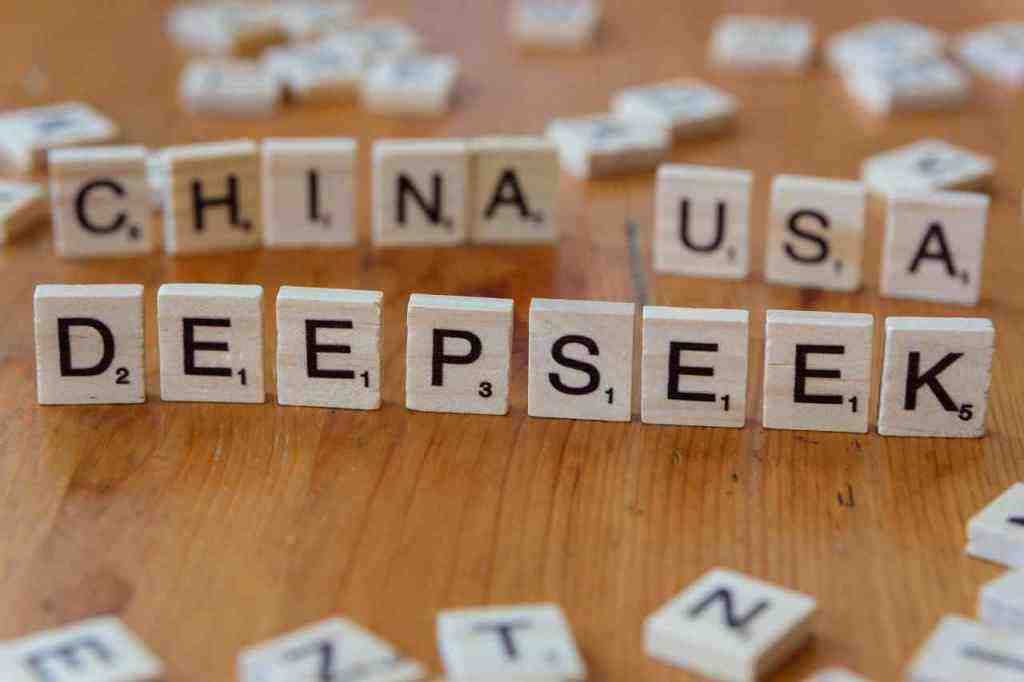The AI Revolution in SEO: How Pay-For-Performance is Reshaping Online Visibility in 2025

Hey there, digital marketers and business owners! If you’ve been in the online space for more than five minutes, you know that SEO isn’t exactly static. It’s more like a constantly shifting landscape, and right now, it feels like we’re standing on the edge of a seismic event. The big news for 2025? Artificial Intelligence (AI) is not just a buzzword anymore; it’s deeply intertwined with how we do SEO, especially with the rise of pay-for-performance (PFP) models. This isn’t just a trend; it’s a fundamental change in how brands in the U.S. are aiming for online visibility and, let’s be honest, actually getting customers. It’s a pretty big deal, and if you’re not paying attention, you might just get left behind.
The Unstoppable Rise of Artificial Intelligence in SEO
Remember when AI in SEO felt like something out of a sci-fi movie? Well, buckle up, because it’s here, and it’s changing *everything*. AI isn’t just helping us find keywords anymore; it’s practically rewriting the playbook.
AI’s Grip on Content Creation and Optimization
Let’s talk content. AI is a powerhouse here. It can sift through mountains of data to figure out what people are actually searching for and what keywords are actually going to get you noticed. We’re talking about predicting trending topics, suggesting ways to make your existing content way better, and even helping to write copy that actually sounds human and engaging. This means brands can create content that truly connects with their audience, which, surprise, surprise, leads to better search rankings and more people sticking around on your site. It’s pretty neat, actually.
Smarter Keyword Research with AI
Keyword research used to be a bit of a grind, right? Staring at spreadsheets, guessing what people might type. Now, AI tools can dig way deeper. They uncover those long-tail keywords (you know, the super specific phrases people use) and semantic variations that you might have totally missed. This level of detail means your content strategy can be way more on-point, targeting exactly who you want to reach. It’s like having a crystal ball for search behavior.
Decoding Search Algorithms with Machine Learning
Search engines themselves are practically run by machine learning these days. Google, Bing, they’re all using AI to figure out what content is best. So, it makes sense that AI is also helping SEO pros understand and adapt to these complex algorithms. Think of it as having a translator for search engine logic, predicting changes and making sure your strategies don’t become obsolete overnight. That’s super valuable when you’re trying to stay ahead.
Deeper Insights Through Natural Language Processing (NLP)
This is where it gets really interesting. Natural Language Processing (NLP) allows AI to understand not just the keywords you use, but the *context* and *feeling* behind a search query. So, instead of just stuffing keywords, you can create content that truly addresses a user’s needs from all angles. This leads to happier users and, you guessed it, better search performance. It’s all about understanding the human behind the search.
Understanding Pay-For-Performance (PFP) in SEO: A Results-Driven Approach. Find out more about AI pay-for-performance SEO for US brands.
Now, let’s shift gears to the payment side of things. Pay-for-Performance (PFP) is shaking up how businesses invest in SEO. Forget paying for just getting your content seen; PFP is all about paying for *results*.
What Exactly is the PFP Model?
In a nutshell, PFP flips the script on traditional SEO spending. Instead of paying upfront for services or for impressions and clicks that might not lead anywhere, you pay when a specific, desired action happens. We’re talking about things like a lead being generated, a form being filled out, or, the ultimate goal, a sale. It’s a much more direct link between your marketing spend and your business outcomes.
Key Performance Indicators (KPIs) That Matter in PFP SEO
For PFP to work, you need to nail down your Key Performance Indicators (KPIs). These are the metrics that show success. Think conversion rates (how many people actually do what you want them to), cost per acquisition (CPA – how much it costs to get that one customer), and return on ad spend (ROAS – how much revenue you get back for every dollar spent). Accurately tracking these is absolutely crucial for PFP to be effective.
Why U.S. Brands Are Embracing PFP
For businesses in the United States, PFP is a really attractive model. Why? Because it significantly reduces risk. You’re not throwing money into a black hole hoping for the best. Your marketing budget is directly tied to tangible business results, making it a super efficient and accountable strategy. It’s a smarter way to invest your marketing dollars.
Navigating the Challenges of PFP Implementation
Now, it’s not all smooth sailing. PFP requires a solid tracking infrastructure. You need to be able to accurately measure and attribute those desired actions. Clear agreements on what constitutes success are also vital. If expectations aren’t aligned or the tracking isn’t set up correctly, it can definitely hinder effectiveness. So, careful planning and execution are a must.
The Power Couple: AI and PFP Synergy for Smarter SEO. Find out more about AI driven SEO for lead generation guide.
When you put AI and PFP together, you get something truly powerful. It’s like a dynamic duo for your digital marketing efforts.
AI-Driven Performance Optimization
AI can continuously crunch the numbers from your PFP campaigns. It spots patterns, identifies what’s working (and what’s not), and optimizes your strategies in real-time. This means AI can adjust bids, refine targeting, and even tweak ad creatives to maximize those conversions and keep costs down. It’s like having a tireless optimization expert working 24/7.
Predictive Analytics for Forecasting Success
Leveraging AI’s predictive capabilities means you can actually forecast how your PFP campaigns are likely to perform. This allows you to make proactive adjustments, allocate resources wisely, and set your campaigns up for success right from the start. No more guessing games!
Hyper-Personalization and Enhanced Targeting
AI takes personalization to a whole new level within the PFP framework. By understanding individual user behavior and preferences, AI can tailor content and offers to specific audience segments. This dramatically increases the likelihood of a conversion because the message is precisely what that person is looking for.
Automating Campaigns for Scalability
Many aspects of PFP campaign management can be automated by AI. Think keyword bidding, audience segmentation, and even content adjustments. This frees up your marketing team to focus on the bigger picture, the strategy, and allows for rapid scaling of campaigns that are already proving successful.
How This Impacts U.S. Brands and the Market. Find out more about Smarter SEO results with AI and PFP tips.
So, what does all this mean for businesses in the U.S.? It’s pretty significant.
Boosting ROI and Cutting Marketing Risk
The integration of AI and PFP directly leads to a better return on investment (ROI) for U.S. brands. By focusing on actual performance, companies can cut down on wasted marketing spend and put their resources into channels that deliver measurable results. It’s a more efficient, results-oriented approach to marketing.
Gaining a Competitive Edge
Brands that jump on board with these AI-powered PFP strategies are gaining a serious competitive advantage. Their ability to use data for smarter decisions and make agile campaign adjustments means they can outperform competitors in terms of online visibility and lead generation. It’s about working smarter, not just harder.
The Rise of Specialized Agencies
This evolving landscape is also creating a demand for specialized marketing agencies. These are the firms that really know their stuff when it comes to AI and PFP execution. They bring expertise in data analysis, campaign management, and performance optimization, offering crucial support to brands that might not have these capabilities in-house.
Reshaping the Digital Advertising Ecosystem
The entire digital advertising world is being reshaped by these trends. As more businesses adopt performance-based models, the emphasis on transparency, accurate attribution, and measurable outcomes will only continue to grow across all areas of digital marketing. It’s a move towards more accountability and tangible results.
Looking Ahead: Future Outlook and Emerging Trends. Find out more about US brands AI SEO performance optimization strategies.
What’s next on the horizon? The evolution of AI and SEO is far from over.
AI Capabilities Will Keep Advancing
The trajectory of AI development is pretty wild. We can expect even more sophisticated applications in SEO and PFP. AI will likely play an even bigger role in understanding complex user journeys, predicting market shifts, and automating even more intricate marketing tasks. It’s going to get even smarter.
Voice Search and Conversational AI Integration
As voice search and conversational AI become more common – think smart speakers and voice assistants – SEO strategies will need to adapt. AI will be absolutely critical for optimizing for natural language queries and conversational interactions, ensuring your brand stays discoverable in these new ways people search.
Ethical Considerations and Data Privacy
With more reliance on AI and data comes a greater need to think about ethics. Data privacy and algorithmic transparency are becoming paramount. Brands need to make sure their AI-driven strategies comply with regulations and, crucially, maintain user trust.
Democratizing Advanced SEO Tools
As AI-powered SEO tools become more accessible, even smaller and medium-sized businesses will be better equipped to compete with the big players. This democratization of advanced capabilities can really level the playing field in the digital marketplace, giving everyone a better shot.
Conclusion: It’s Time to Embrace the Future of SEO
The convergence of AI and pay-for-performance models marks a really pivotal moment in the evolution of SEO. For U.S. brands, this is a massive opportunity to achieve smarter, more efficient, and more accountable digital marketing results. By embracing these advancements, businesses can boost their online visibility, drive meaningful engagement, and ultimately achieve sustainable growth in an increasingly competitive digital landscape. The constant developments in this sector really highlight how important continuous learning and adaptation are for success. So, are you ready to evolve your SEO strategy for the AI-powered future? *** *Disclaimer: While this post reflects current trends and expert insights as of August 2025, the digital marketing landscape is highly dynamic. It’s always recommended to stay updated with the latest developments and consult with digital marketing professionals for tailored strategies.*
